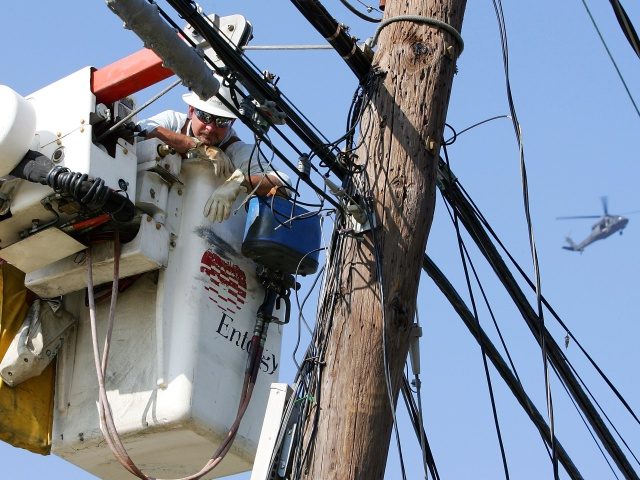Nineteen Senate Republicans voted with Democrats to approve expanding broadband across the United States based on racial quotas and the migration levels of American communities as part of a so-called bipartisan infrastructure bill.
On Tuesday, in a 69-30 vote, 19 Senate Republicans joined Democrats to pass the Infrastructure Investment and Jobs Act, which includes expanding broadband based on racial quotas and rewards for blue states that drive up overall immigration to the U.S.
Those 19 Senate Republicans include:
- Dan Sullivan (R-AK)
- Shelley Moore Capito (R-WV)
- Mike Crapo (R-ID)
- Roy Blunt (R-MO)
- Richard Burr (R-NC)
- Deb Fischer (R-NE)
- Lindsey Graham (R-SC)
- Rob Portman (R-OH)
- Thom Tillis (R-NC)
- Lisa Murkowski (R-AK)
- Jim Risch (R-ID)
- Chuck Grassley (R-IA)
- Bill Cassidy (R-LA)
- Kevin Cramer (R-ND)
- Roger Wicker (R-MS)
- Mitch McConnell (R-KY)
- John Hoeven (R-ND)
- Susan Collins (R-ME)
- Mitt Romney (R-UT)
The bill includes the Digital Equity Act that seeks to expand broadband to American communities that currently lack access to the Internet due to either poverty, dilapidated infrastructure, or their geographical location such as rural communities.
As part of the plan, the Department of Commerce would set up a grant program to states to fund broadband expansion. The grants would be divided up using this formula:
50 percent of the total grant amount shall be based on the population of the eligible State in proportion to the total population of all eligible States.
25 percent of the total grant amount shall be based on the number of individuals in the eligible State who are members of covered populations in proportion to the total number of individuals in all eligible States who are members of covered populations.
25 percent of the total grant amount shall be based on the comparative lack of availability and adoption of broadband in the eligible State in proportion to the lack of availability and adoption of broadband of all eligible States…
In the terms section of the bill, a “covered population” means anyone who is considered an “aging individual, a prison inmate excluding those in federal prison, a veteran, an individual with disabilities, an individual with a language barrier, and anyone who is a member of a racial or ethnic minority.”
Therefore, 25 percent of the total grant money in the program to help a state expand broadband access will be partially based on how many non-white residents and newly arrived immigrants who struggle speaking English a particular community has.
Blue states and counties, those with already high concentrations of wealth, are set to benefit the most from such standards on broadband expansion — primarily from the requirement that federal funds be rewarded to migration-heavy areas.
For instance, the nation’s top ten counties with the highest foreign-born populations are primarily deep blue areas controlled by Democrats including Los Angeles County, California; Miami-Dade County, Florida; Harris County, Texas; Cook County, Illinois; Queens County, New York; San Diego County, California; and Santa Clara County, California, among others.
Meanwhile, red states and counties such as North Dakota, Idaho, South Dakota, Montana, Wyoming, Arkansas, Missouri, South Carolina, Nebraska, Kansas, Mississippi, Louisiana, West Virginia, and Kentucky are set to lose out on such funds to expand broadband potentially because none have significant foreign-born populations.
John Binder is a reporter for Breitbart News. Email him at jbinder@breitbart.com. Follow him on Twitter here.

COMMENTS
Please let us know if you're having issues with commenting.